#lit blog
Text
"If someday the moon calls you by your name don't be surprised, because every night I tell her about you."
– Shahrazad al-Khalij
"I have an entire forest living inside of me and you have carved your initials into every tree."
– Pavana पवन
#love love and just love#dark academia#light academia#dark acadamia aesthetic#dark fantasy#excerpts#fragments#poetry#books & libraries#romanticism#romantic literature#classic literature#classic lit#lit#classic academia#litblr#lit blog#soft academia#light academism#dark acadamia quotes#quotes#peoms#arabic poetry#arabic poems#cottage academia#spilled love#words#txt words#spilled words
3K notes
·
View notes
Text
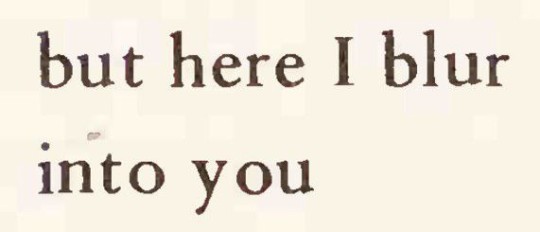
#dark academia#chaotic academia#dark acadamia aesthetic#dark academia literature#spilled poetry#classic literature#charles bukowski#coldtriumphwonderland#dark academia quotes#shakespeare#jane austen#literature#lovers#lit blog#tumblr#soulmate#art#reading#books & libraries
310 notes
·
View notes
Text
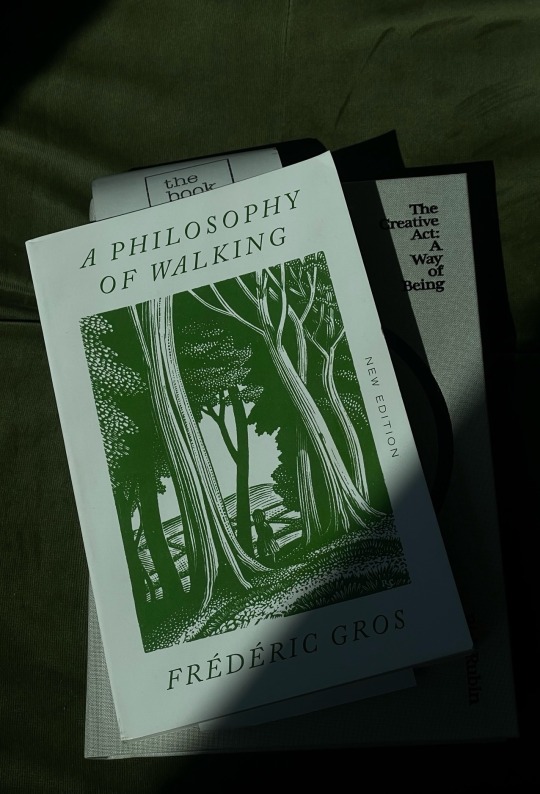
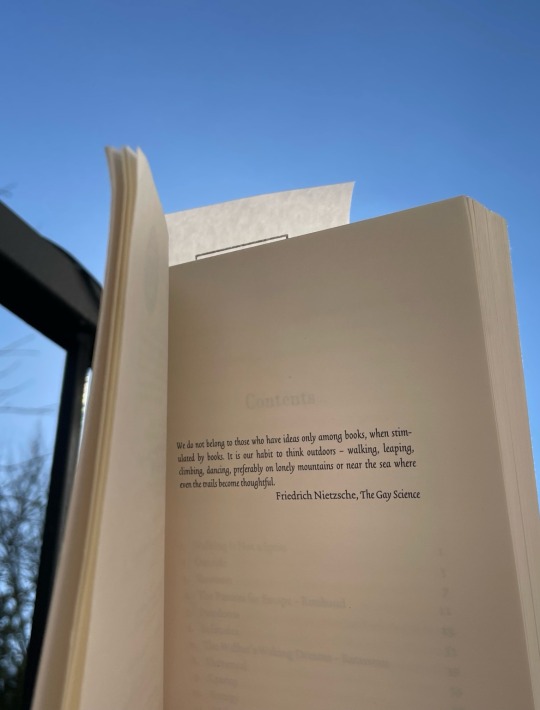
saturday afternoon goodies. i don’t always believe in retail therapy, but a trip to a local bookstore is allowed now and then, as a treat.
#mine#nostalgia#books#bookshelf#quotes#literature#bookblr#local bookstore#philosophy#the creative act#rick rubin#morning pages#walking#new books#litblr#lit blog
67 notes
·
View notes
Text
Kafka made me emotionally destitute with his, "I solve problems by letting them devour me" . Just like him, I'm trying to communicate something incommunicable, to explain something inexplicable, to tell about something I only feel in my bones. As my inner realm descends into chaos, my mental serenity cascades into oblivion, mirroring the turbulence within. Feeling differently from what I think and thinking differently from what I "should" think will be the death of me.
#dark academia#franz kafka#letters to milena#the metamorphosis#dark academic aesthetic#literature#writblr#litblr#bookblr#academia#writeblogging#dark acadamia quotes#franz kafka quotes#books#sadcore#depressing shit#female writers#writerscommunity#writeblr#lit blog#lit#books and literature
154 notes
·
View notes
Text
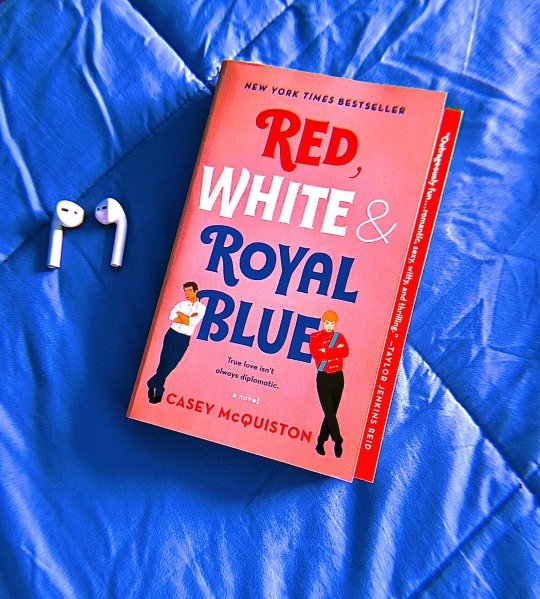
History, huh? Bet we could make some. 💘
#booklr#light acamedia#book quotes#dark academia#book blog#books and libraries#book blogger#bookish#english lit major#bookstore#books and literature#english literature#literature#gay literature#gay books#queer literature#queer books#red white and royal blue#rwrb#rwrb movie#prince henry rwrb#prince henry of wales#alex claremont diaz#casey mcquiston#booknerd#bookworm#booklover#litblr#lit blog#introvert
27 notes
·
View notes
Text

^ Our work for class next week. Our professor went onto AO3 and chose a random anime and the first thing that popped up was rated E, and the tags omg. The professor did not seem to notice
I love this class
#comparative literature#literature#lit blog#shitpost#archive of our own#ao3 fanfic#ao3#fanfic#fanfics#she is really cool tho#she gave us cute keychains
49 notes
·
View notes
Text
on cancel culture, tumblr, lit crit shit, paranoid reading, and some observations on blogging about byron & the shelleys —
every day someone comments on one of my posts about old dead writers with the most insufferable and reactionary takes disguised under a veil of liberalism. go read eve sedgwick's essay on paranoid reading & reparative reading, and learn how to enjoy things!!! why are you trying to cancel people who died 200 years ago? stop!!!
9/10 times they've never read the writer in question, they just hear that these writers were problematic and without using their own critical thinking skills, and having done zero research, they readily condemn them. no real appreciation for literature, no real appreciation for history or culture. and if they do have these, or if they have done research, it's entirely biased, already marked with judgement (aka exemplary paranoid reading).
i think it's very interesting that percy shelley and lord byron were getting cancelled in their own time period left and right, and now they still face cancellation attempts for some of the same reasons, only now more often at the hands of self-described progressives who feel they do so for the "right reasons."
a major problem in discourse (both in and outside of academia) is that most people do not understand the difference between "criticism" in the academic sense (which is synonymous with "discussion," "analysis," "engagement") and "criticism" in the colloquial sense (synonymous with "condemnation" or "harsh judgement" or even sometimes "attacking").
so when we start talking about literary criticism, some misinformed people automatically seek to cancel every dead writer, burn every book, and disregard all of history, even the progressive bits, because they simply don't care, and think that they are being "critical" and that this is a good thing, when they are using the wrong definition of the term to begin with. if i taught a class on literature the first thing i would do is make the distinction between these two definitions.
a lot of people approach dead writers or old writing in bad faith (paranoid reading). they automatically denounce The Olds for being problematic, and then proceed to believe they are morally superior for their own lack of depth.
percy shelley is one of the most progressive and forward-thinking figures of his generation and it's honestly a miracle that we still have access to some of his works which were literally burned in his own lifetime, but that his friends and most importantly his best friend, his wife mary shelley, carefully preserved during his life and long after his death even in the face of social ruin and censure, because they recognized his immense merit and they desperately loved him and his work. this is a beautiful thing!!!
this isn't the narrative a lot of people prefer, though. a lot of people would have mary shelley, instead of being the publisher and defender of his works as she was, be forced into the role which she herself openly derided, of being percy's unwilling bride, victim, who merely tolerated him, who was herself either repressed or oppressed by him. nor is nuance allowed in this narrative.
this narrative is based on a reactionary stance disguised as progressive. that all women writers are mere victims to the men around them. nevermind the fact that mary shelley's husband was one of her biggest encouragers (as well as her trusted proofreader and editor; and all this also goes for her father godwin, but to a lesser extent, as one could more easily make the argument that godwin did emotionally neglect mary).
paint all male writers as abusive control freaks, and all female writers associated with them as their weak-willed puppets, all based on their biological sex and a surface-level analysis of their biographies. these people are arguably just as bad as the sexist pseudo-scholars who have claimed that percy actually penned the entirety of frankenstein and used mary as his puppeteered pseudonym. as if mary never sought agency of her own and never possessed a modicum of it!
for a fair analysis on percy and mary's connection, i highly recommend Anna Mercer's "The Collaborative Literary Relationship of Percy Bysshe Shelley and Mary Wollstonecraft Shelley" and her interview by Mathelinda Nabugodi for a TLDR version.
i find it interesting that my posts about percy shelley's personal life are not only much more popular than my similar posts about byron (probably due to percy's surname; the mary/frankenstein connection) -- but also that i see way more criticism against percy than against byron.
i think this is partly due to their portrayals in the ahistorical 2018 mary shelley biopic film (see: graham henderson's blog posts on this topic) wherein byron was somehow portrayed as less of an asshole than shelley (which i never would have thought possible had i not seen it). & maybe it has to do with interest in & misconceptions about mary in general. but this is surprising because in many regards, percy really is much more likeable and progressive than byron.
i once had a person hating on byron and trying to argue with me entirely under a post about percy shelley which had nothing to do with byron. whenever i try to critically engage with this sort of backlash on my posts, it is utterly pointless. none of them are interested in or respectful of the opinions of others, nor are they receptive to facts or nuance or engaging with any material in any mature or serious way.
it's especially difficult that they mostly comment on my more popular joking posts/memes, bc that sets up a false pretense for me or my blog to be taken unseriously, when i do take academic figures & topics seriously. my blog is a place for me to unwind and joke about literature, yes, but it's not like i'm just mindlessly joking about writers i've never studied. a lot of people assume that i'm genuinely ridiculing writers when i playfully make fun of them, so they take it as an invitation to do the same, when that's not my case at all.
— back to the percy/byron comparison: in the history of my blog posts, i've seen probably 30+ percy haters and maybe 5 byron haters. as i said, this is honestly bewildering. there are way more justifiable reasons for hating byron than there are for hating shelley.
if we're speaking solely in terms of political, creative, & ideological stances between the two, (and there are hundreds of books/essays comparing their lives/works/philosophies,) i agree and disagree with both of them on various topics. they're both extremely complex writers/thinkers/figures and very different people, despite having been friends.
but if i'm comparing them biographically speaking, if i had to let one of them babysit my children, i would choose percy 10/10 times. if i had to live with one of them, i would choose percy most of the time, although either of them would be tough as a roommate for different reasons.
but overall, percy was a bit more decent biographically speaking, though that doesn't make him a superior writer (percy himself wrote numerous times that he felt byron was creatively superior to him, but morally inferior). and i think most people who've researched the two would agree that percy is the more moral poet by most standards.
for these and many other reasons, it seems apparent to me that the majority of people who hate percy are often parroting the rhetoric of others & not actually thinking for themselves -- which mary endlessly wrote that she despised, as she devoted so much of her time and energy to defending her husband's moral character from critics, so it's especially disappointing that most of the anti-percy sentiment comes from mary shelley fans, who don't even realize how much effort she put into publishing his work and transcribing it as his pre- and posthumous amanuensis.
#lord byron#percy shelley#mary shelley#william godwin#paranoid reading#literary criticism#memoirs of a lit blogger#lol#literature#rambling#my ramblings#me#my essays#it practically is one#my writing#lit blog#eve sedgwick
40 notes
·
View notes
Text

— Wendy Cope, from If I Don’t Know (2001)
#springs here babyyyyyyyyyyy#I love queue. I’m glad I exist#literature#Wendy cope#poetry#lit blog#litblr#dark academia#books#light academia#aesthetic#dark academia style#academia#dark academia aesthetic
86 notes
·
View notes
Text
According to my friends I have unknowingly collected a series of Unlovable French Men, which inlcude:
- The Phantom from Phantom of the Opera
- Javert from Les Miserables
- Hawk Moth from Miraculous Ladybug
Look I just want to see angry, evil(or law-abiding to the point that it becomes evil) people in long black coats(and/or capes) okay, it’s not my fault if they’re all Frenchmen
#evil angry possibly insane frenchmen are my type now I guess#phantom of the opera#erik destler#les miserables#javert#miraculous ladybug#hawkmoth#lit blog#bookblr
20 notes
·
View notes
Text
“Charlie and the Chocolate Factory” – A Victorian Fairy Tale
Off and on, I’ve been thinking about Roald Dahl’s classic children’s story, Charlie and the Chocolate Factory.
A few years ago, it came to light that, according to Dahl’s widow, “His first Charlie that he wrote about was a little black boy.” This comes as some surprise to those who know the history of the novel, since the Oompa-Loompas were “pygmy Africans” in the first edition, and remained imported slave labor in all subsequent editions and adaptations.
The writer of the linked Guardian article seems to think that making the Oompa-Loompas orange-faced and green-haired somehow erases this fact, but come on now. Regardless of whether they’re a real people, the very premise of importing an entire population into your factory as labor is colonialist as can be, and coding them with uniform physical features is both racist and racialist.
This in itself is nothing new, but lately I’ve been reevaluating these parts of the text in light of the news that Charlie was originally black. The Guardian, predictably, only cares about Dahl’s reputation, but we should take it further. How does a black Charlie change our reading of Charlie and the Chocolate Factory itself?
Charlie was black, and the Oompa-Loompas were also black. Narratively and thematically, what do these two facts say in conjunction?
Suddenly, a lot of pieces fit together more tightly than they ever did before.
It's a story about the Faustian bargain that a person of minority status must often make with the powers that be—powers that trace their lineage back to empire.
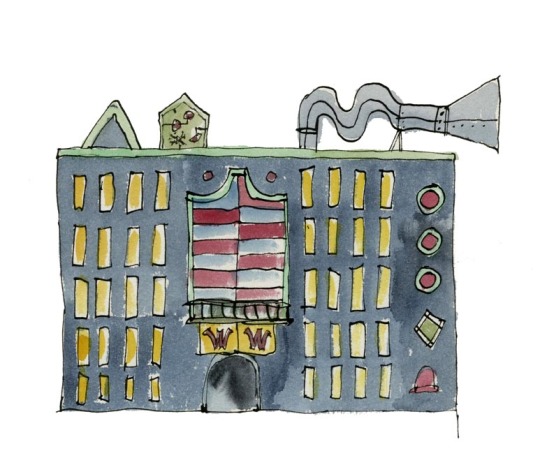
Art by Quentin Blake, Roald Dahl’s official illustrator
Willy Wonka’s chocolate factory is a microcosm of the British Empire itself. It’s a titanic palace of industry, producing wonders never before seen in all the world—and it does so through the labor of enslaved non-white people, never seen and never spoken about. Wonka’s magical candies capture the magical feeling of going to the sweet shop as a little English child, but Dahl also heightens the dark reality of how that idyllic childhood fancy was produced, as well as the cruel and paternalistic morality that oversaw it. The rules of the English colonies govern Wonka’s workers, while the rules of the English schoolhouse and nursery govern Wonka’s visitors.
And on that note, it's worth mentioning that while the naughty children's punishments are rightly regarded as extreme by today's audiences, the morality behind them is not rejected outright. “That’s what you get! You shouldn’t be greedy or rude or undisciplined,” etc. Conventional parenting still shows its Victorian roots in countless small ways, and not just in the fact that some people today still spank their children. Moral goodness is measured in obedience, and in conformity to a very confining model of behavior. Veruca Salt might have been a spoiled little tyrant—but what did Violet Beauregard really do? She was rude and excitable, and chewed with her mouth open. You know, things that children do because they’re children. Yet these behaviors were strictly managed and punished in nineteenth and early twentieth century English society.
Anyway, I’m getting away from the main point...
Into this world enters Charlie, a poor black boy who lives in a slum with his mother and his four grandparents. He, like all the other children, sees the hidden secrets of the factory. He sees the miraculous candies, the chocolate river, the pink candy boat. He sees the Oompa-Loompas. He listens, like all the other guests, to Willy Wonka’s stories and speeches and eccentric quips.
Yet while the other children buck against the rules of Wonka’s little kingdom, Charlie obeys. Like a poor black boy does in a world run by wealthy white men, he makes himself small and polite. Yes, he’s more virtuous than the other children by consequence of how he was raised—but he’s also conforming to a social script on which his survival depends, something that the spoiled little white children have never needed to do. This is how he reaches the end of the tour unharmed.
This is also the reason why, when offered all of Wonka’s empire as inheritance, he accepts it. The choice is no choice at all. On the one hand, he can inherit a morally bankrupt system that churns out wealth on the backs of imported slaves... and on the other hand, he can refuse, and allow his family to continue starving in the slums.
And that choice carries much more weight when Charlie Bucket is black himself.
When Charlie is black, his story lays bare the moral quandary at the heart of modern capitalism. When Charlie’s skin is the same color as the Oompa-Loompas’, you can’t help but see it. The only way to make a better life for yourself is to embrace an economic system that began in an era when companies traded human beings as property, and that has still not cut ties with the wealth made from those grave moral crimes. When your very life is at stake, you have no choice but to make a compromise with these entities. And the more you stand to gain, the bigger the compromise you must make.
An extra layer of dark irony comes from that fact that Willy Wonka himself is probably the reason why Charlie’s family is poor in the first place. Not only is he part of the capitalist class, but he doesn’t even circulate money back into the economy, like other capitalists claim to do.
The Oompa-Loompas don’t get wages which they then spend out in the surrounding community. They’re paid in cacao beans, a cheap resource that Wonka has aplenty. All the business profits go directly to Wonka, and this money never leaves his factory except in the purchasing of more materials. His factory is a huge economic drain on the area, and Charlie’s family is likely impacted by it directly.
Anyway...
All of this is to say that Charlie and the Chocolate Factory was conceived of as “a Victorian fairy tale,” but not as an unthinking reproduction of Victorian values. Roald Dahl was all about subverting and undercutting expectations—sometimes with an overt twist, as in the story “Genesis and Catastrophe,” and sometimes with a subtle, growing unease that never resolves. Though he clearly backed down from this in the final version of Charlie and the Chocolate Factory, the vestiges of a dark satire remain. As it turns out, Charlie himself was the missing piece to this, turning the factory’s vague tonal undercurrent of wrongness into pointed, directed criticism.
I would love to see a black writer, someone in the vein of Jordan Peele, extract this stuff from where it has been buried under layers of editing and editorializing, and put it on the screen or the stage.
#charlie and the chocolate factory#willy wonka#willy wonka and the chocolate factory#literature#children's literature#literary criticism#lit crit#Jordan Peele#Roald Dahl#colonialism#litblr#lit blog
138 notes
·
View notes
Text
Time is the presence of God in the world of space, and it is within time that we are able to sense the unity of all beings.
Abraham Joshua Heschel, The Sabbath
#curbside quotidian#art#lit#quote#heschel#the sabbath#abraham joshua heschel#time#god#space#jewish#judaism#artblr#art blog#bookblr#book blog#langblr#litblr#lit blog#studyblr#writeblr
22 notes
·
View notes
Text
When "Jean-Paul Sartre" wrote "I want to leave, to go somewhere where I should be really in my place, where I would fit in.. but my place is nowhere; I am unwanted."
#dark academia#light academia#dark acadamia aesthetic#excerpts#fragments#poetry#dark fantasy#books & libraries#bookblr#book aesthetic#words#lit#litblr#romantic literature#romantic academia#soft academia#lit blog#sad peoms#spilled love#spilled ink#spilled thoughts#spilled words#spilled poem#on life#short peoms#dark academism#dark acadamia quotes#literature quotes#writings on tumblr#novel writing
320 notes
·
View notes
Text

Fyodor Dostoevsky, The Brothers Karamazov
#dark academia#chaotic academia#dark acadamia aesthetic#dark academia literature#spilled poetry#classic literature#lit blog#charles bukowski#jane austen#coldtriumphwonderland#fyodor dostoevsky#the brothers karamazov#mitya karamazov#russian literature#tbk
264 notes
·
View notes
Text
" my room was created for classical music, candles being burnt on the coldest night of winter, and for housing withering flowers that otherwise would have been thrown away. it was created for collecting small material memories; for bits of my childhood to be plastered on the walls and piled up on bookshelves. it was created very intricately with the intention of it being comforting and warm: a safe haven when i could find no other. it was created for stars to light the ceiling when darkness had overtaken it, so that i could see you next to me, at least a little bit. "
~ makenzie peterson
#dark academia#light acamedia#quotes#poetry#aesthetic#art#aesthetics#classic academia#dark academia aesthetic#dark academia quotes#chaotic academia#chaotic academic aesthetic#study aesthetic#book aesthetic#lit aesthetic#lit blog#literature#classic literature#classic lit art#english literature#moodboard#literature quotes#writerscommunity#poet#poetry community#dead poets society#the great gatsby#emily dickinson#dickinson#wlw
40 notes
·
View notes
Text
"Nothing ever ends poetically. It ends and we turn it into poetry. All that blood was never once beautiful. It was just red."
-Kait Rokowski
Does anything really have a value unless we assign a value to it? It feels so empty to us humans to think that every event is actually free of essence that we give meanings and emotions to things..
#dark academia#dark acadamia quotes#dark academic aesthetic#chaotic academia#music#kait rokowski#poetry#poetry excerpt#light academia#academia#books & libraries#books#litblr#lit blog#literature#writeblogging#writblr#bookblr
40 notes
·
View notes
Text
When people ask me what’s my favourite book? The panic, the anxiety, the torture: how am I suppose to pick only ONE book?!
#booknerd#booklover#booklr#blablabla#litblr#lit blog#academia aesthetic#romantic dark academia#dark academia#classic lit#leo tolstoy#oscar wilde#shakespeare#dostoyevsky#gustave flaubert#anaïs nin#Virginia Woolf#Sylvia Plath#classics#classic academia#franz kafka#kafka#chaotic academia#light academia#goethe#johann wolfgang von goethe#russian literature#french literature#irish literature#english literature
83 notes
·
View notes